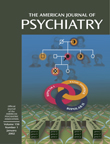Levetiracetam for Acute Mania
Mr. A was a 42-year-old divorced white man with a 27-year history of nonrapid-cycling bipolar I disorder. He had no psychiatric comorbidities according to the Structured Clinical Interview for DSM-IV (1) a 2–3 month history of elevated mood, pressured speech, sleeplessness, and related symptoms, and subthreshold depression (a baseline score of 25 on the Young Mania Rating Scale [2] and a score of 16 on the 31-item Hamilton Depression Rating Scale). Mr. A had experienced his first manic episode at age 15 and his first depressive episode at age 35. He had four lifetime psychiatric hospitalizations and had attempted suicide at age 39. Previous episodes had been modestly responsive to adequate trials of lithium, divalproex, carbamazepine, conventional neuroleptics, selective serotonin reuptake inhibitors, and/or psychostimulants. A 6-week trial of 1000 mg/day of divalproex and 15 mg/day of olanzapine was discontinued because of sedation and nausea, after only partial improvement of his current mania.Levetiracetam was prescribed to Mr. A at 500 mg/day and increased by 500 mg/day over 5 weeks to 2500 mg/day. His score on the Young Mania Rating Scale decreased to 6, his score on the Hamilton depression scale decreased to 5, and he experienced no side effects. A 50% reduction in score from baseline on the Young Mania Rating Scale was seen at week 3. Euthymia was sustained for 3 weeks, until Mr. A missed 6 days of drug therapy after he missed an appointment. He was seen subsequently with reemergent mania, a score of 22 on the Young Mania Rating Scale, and a score of 22 on the Hamilton depression scale. His mania again was ameliorated after he started taking levetiracetam, 2500 mg/day. There were no further recurrences of mania by the 6-week follow-up.
References
Information & Authors
Information
Published In
History
Authors
Metrics & Citations
Metrics
Citations
Export Citations
If you have the appropriate software installed, you can download article citation data to the citation manager of your choice. Simply select your manager software from the list below and click Download.
For more information or tips please see 'Downloading to a citation manager' in the Help menu.
View Options
View options
PDF/EPUB
View PDF/EPUBGet Access
Login options
Already a subscriber? Access your subscription through your login credentials or your institution for full access to this article.
Personal login Institutional Login Open Athens loginNot a subscriber?
PsychiatryOnline subscription options offer access to the DSM-5-TR® library, books, journals, CME, and patient resources. This all-in-one virtual library provides psychiatrists and mental health professionals with key resources for diagnosis, treatment, research, and professional development.
Need more help? PsychiatryOnline Customer Service may be reached by emailing [email protected] or by calling 800-368-5777 (in the U.S.) or 703-907-7322 (outside the U.S.).

